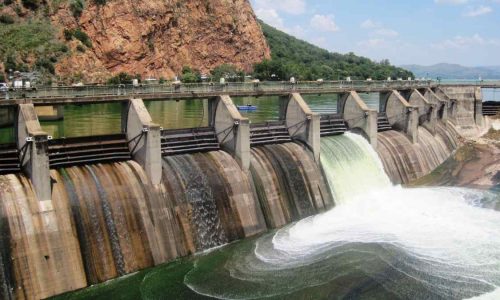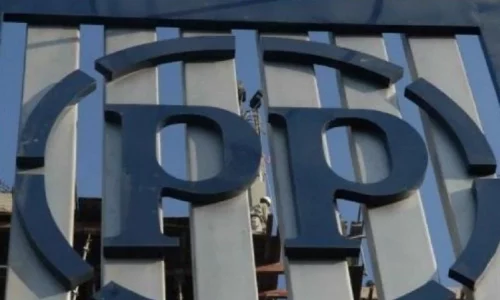Investment in Indonesia’s electricity sector is deemed to have reached a saturation point, with high uncertainty is a major concern, despite the pressure to transition to renewable energy sources (RE).
Abra Talattov, Chief Researcher at the Center of Food, Energy, and Sustainable Development, the Institute for Development of Economics and Finance (Indef), explained that one indicator of this phenomenon is the failure to achieve the government’s investment realization targets.
For instance, investment in the electricity sector reached US$5.75 billion out of a target of US$6.64 billion in 2023, which was only 87 percent of the target. This figure is equivalent to the achievement in 2022 and a decrease from the 2021 figure of US$6.71 billion.
Abra emphasized that the most fundamental challenge regarding investment in the electricity sector lies in existing conditions, where demand cannot absorb the aggressive electricity production over the past 10 years.
“The oversupply condition in 2022 was around 6-7 GW, and in 2023, there was still about 4 GW. This is also reflected in several revisions of the Electricity Supply Business Plan (RUPTL), where initially the target growth of electricity consumption was projected to be 8.7 percent per year, but the realization turned out to be only 3.5 percent per year,” he said.
In addition, Indef noted that the surplus supply capacity of electricity with sold electricity has been around 25 percent over the past decade, especially after the inauguration of the mega project of the 35,000 MW power plants.
Therefore, maintaining the national economic growth rate and the development of the processing industry is key to ensuring that investment in the electricity sector moves away from the saturation point. Especially for investments related to independent power plants (IPPs), especially for EBT power plants, it is crucial to consider not only the IPP investment issue but also the demand side, as well as the needs of industries and key sectors.
“When entering the energy transition era, if the demand side is not optimized, it will only add to the burden of electricity provision costs,” Abra said.
On the other hand, another note regarding the less conducive investment in the electricity sector is the numerous uncertainties, especially obstacles in reaching exit strategy opportunities in the future.
For example, the delay in Mitsui & Co., Ltd’s divestment process of Paiton Energy, one of the major IPPs in the country, sets a real precedent for future investor perceptions of Indonesia. As of now, the transfer of Mitsui’s shares, which was postponed, to RATCH Group from Thailand and Medco Indonesia, remains unresolved, despite the transaction fully complying with the Sponsor Agreement and Expansion Sponsor Agreement, the laws applicable in Indonesia, and Mitsui’s initiatives to write to various parties, including regulators.
Mitsui’s divestment from Paiton Energy has been on the table since 2021. Mitsui is trying to sell its entire stake in Paiton Energy, which amounts to 45.5 percent, specifically to RATCH by 36.26 percent and Medco by 9.25 percent. Later, the shares of Paiton Energy previously held by Medco, amounting to 28.48 percent, will increase to 37.74 percent. Nebras Power Qatar, as the old shareholder, will remain at 26 percent, while RATCH Group through RH International Singapore Corporation Ltd will hold 36.26 percent.
Since its construction in 1994, Paiton Energy has been bound by a long-term power purchase agreement (PPA) until 2042, which is still 18 years from now. Ultimately, the phenomenon in Paiton reflects the challenges of investing in the energy sector in Indonesia. This becomes a concern for investors, especially those venturing into new and renewable energy (EBT).
“Uncertainty doesn’t just stem from unclear regulations but also from various other factors,” Abra concluded.
Similarly, Fahmy Radhi, an Energy Economist Observer from Gadjah Mada University, believes that investment in the electricity sector is becoming more challenging due to the energy transition trend. On the other hand, coal-fired IPPs are still needed, and some are still in the process of starting operations. “Indeed, the governance in the power plants in Indonesia allows many parties to compete for interests.
Worse, much of the uncertainty comes from decision-makers or policy-makers. This also contributes to making investment in EBT power plants in Indonesia less attractive,” he explained. This is compounded by PLN’s unattractive purchasing prices for electricity produced by EBT plants. Economic value and regulatory certainty are still critical issues for investors. Despite the government’s ambitious target to increase the mix of EBT power plants to 23 percent next year and reach 51.6 percent by 2030, the progress at the end of last year only reached 13 percent. “I think if the investment climate in the electricity sector remains less conducive, it will be even more difficult for the government to pursue the future mix of EBT power plants,” Fahmy concluded.










